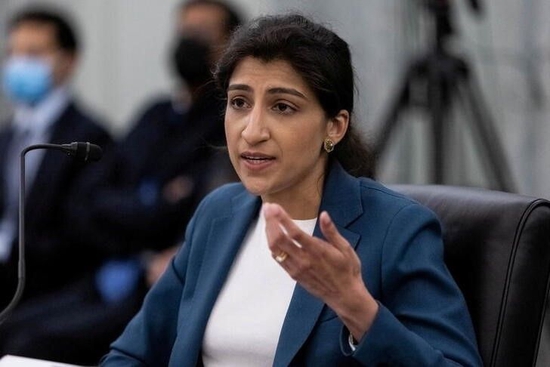your current location is:Home > investHomeinvest
Meta Refuses to Compromise: Will Continue to Block FTC Chairman's Lawsuit in the Within Deal

According to reports, Meta Platforms has little chance of barring Federal Trade Commission (FTC) Chairman Lina Khan from participating in the FTC's planned acquisition of virtual reality (VR) by Meta. Content developer Within Unlimited's approach.
But that hasn't stopped Meta from continuing its campaign to disqualify Khan, with recent evidence this week showing the company filed a document with U.S. District Judge Edward Davila in San Jose, Calif. A judge is overseeing the Federal Trade Commission's application for a preliminary injunction to block Mida's acquisition of Within.
Here's the context: Meta and its predecessor Facebook, for more than a year, have argued that Khan's pre-FTC speeches, articles and testimony showed her hostility to Facebook and other big tech companies, and that it's becoming a After the FTC chair, she cannot be expected to lead the agency to unbiased decisions.
For Meta, however, it was an extremely complex and multi-pronged endeavor. In October, Meta first formally offered to have Khan recused from the case after she cast a decisive vote in the FTC's amended complaint in federal court alleging that Facebook violated antitrust laws in its acquisitions of Instagram and WhatsApp. The FTC rejected the recusal request, noting that its case against Facebook was brought in federal court, not an administrative proceeding, so the company would receive full constitutional protection from a trial judge.
Meta then argued that the court should dismiss the FTC's amended complaint because of Khan's bias, as she cast the deciding vote for the committee to resume the lawsuit. U.S. District Judge James Boasberg in Washington, D.C., rejected that argument in January last year. The judge ruled that Khan acted more like a prosecutor than a judge when he voted for the FTC to file an amended complaint. Bosberg said that, by federal prosecutors’ standards, her previous policy views on the so-called big tech monopolies did not lead the court to ask Khan to recuse themselves.
But now Meta argues that a different standard should apply to the company's attempted acquisition of Within, which the FTC filed concurrently with an administrative lawsuit alleging that the proposed deal violated federal antitrust laws, and was filed in federal court. A lawsuit was filed to prevent Meta from completing the transaction. In a recusal petition to the FTC last July, lawyer Meta, from Weil, Gotshal & Manges, said Khan would act as a judge in any administrative case brought by the FTC, so the fairness of the case would be determined by "her interest in Meta’s established attitudes” were undermined. =
Meta then sought to stay the administrative lawsuit, arguing that Khan's involvement undermined the legality of the case.
Khan has explicitly refused to drop out of the case. Under the FTC's recusal rule, Khan has decided to remain involved in the case, and that decision will now be made by other members of the committee, according to an Oct. review.
Meta informed Davila of the procedural development in its preliminary injunction filing this week, noting that it may be related to the FTC's motion to dismiss Meta's aggressive defense.
According to reports, Meta will almost certainly lose the evasion case at the committee plenary meeting. FTC rules require that a decision not to recuse an individual committee member can only be overturned by a majority of the other committee members. Currently, there are only three FTC commissioners other than Khan, following the departure of Republican commissioner Noah Phillips. Two of the three are unlikely to vote to kick Khan out of the Meta merger.
In response, Meta issued a statement on its efforts to ask Khan to sidestep. "We have previously expressed concerns about Chairman Khan's impartiality in matters involving Meta, and we share those concerns with this case," the company said. An FTC spokesman described the agency's recusal rules.
So why is Metala working so hard on an issue that has already lost once and is likely to lose again?
Louis Virelli, a professor at Stetson University School of Law, said the company believes they have reason to ask Khan to go to trial because they believe the FTC chairman is acting as a arbiter in administrative litigation. But the FTC's internal evasion criteria are "very vague," leaving a lot of room for commissioners' discretion. If Meta ultimately loses the FTC administrative case, they may cite Khan's refusal to recusal as one of their grounds for appeal, Reilly said, but the bar for such an appeal is very high. Reilly correctly predicted last year that Meta would lose in Bosberg's case.
At the same time, Meta could contest the federal court's preliminary injunction, citing its protests over Khan's continued involvement in the administrative lawsuit, Virelli said.
The company paid substantial attorneys' fees in two parallel cases to play this multidimensional chess game. We'll know more about whether the company's strategy has paid off when the preliminary injunction case is heard in December.
Next:Already is the last article
related articles
Article Comments (0)
- This article has not received comments yet, hurry up and grab the first frame~












